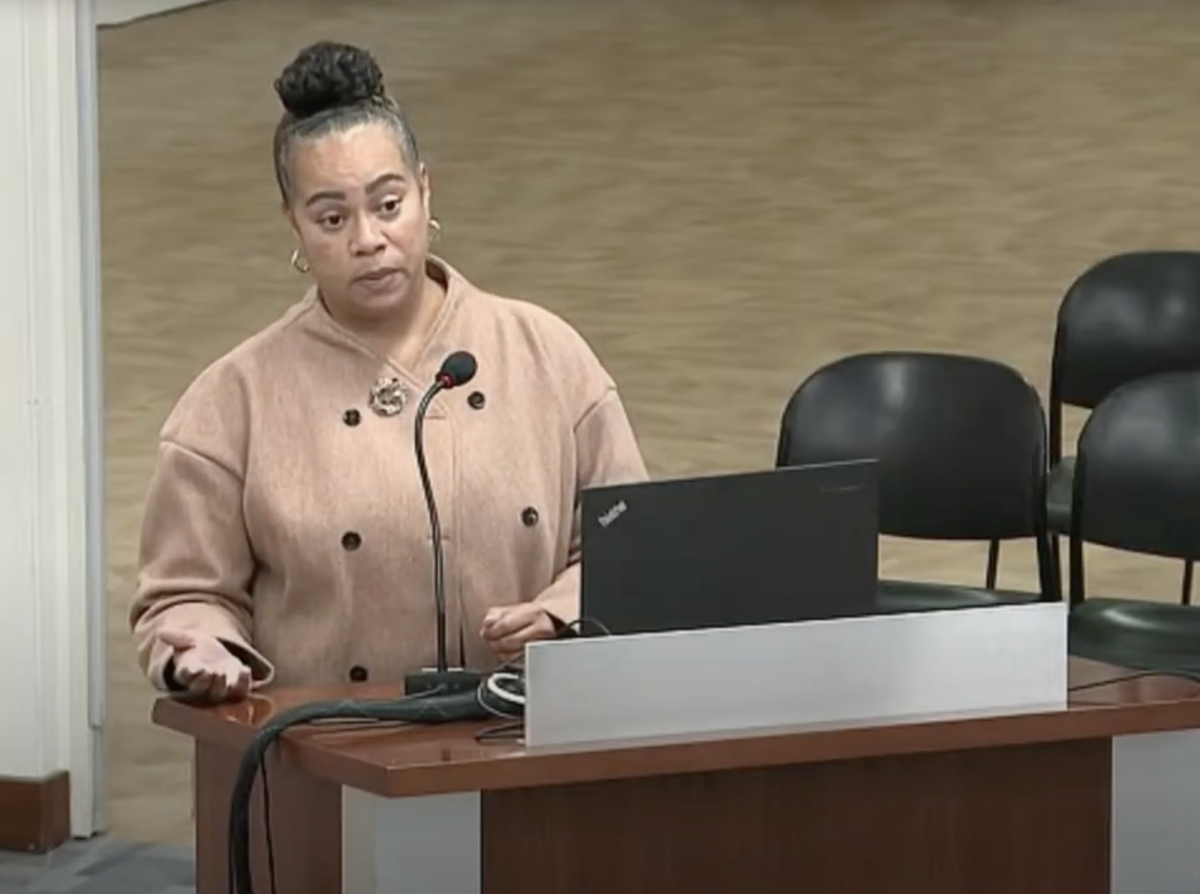Oakland Mayor Libby Schaaf believes that the city’s recent surge in population will translate into jobs. Oakland was dubbed “Brooklyn by the Bay” by a recent New York Times article and has the second highest rental increase in the nation, according to Trulia, a local real estate website, but some are worried that the growth is displacing long term residents.
Two separate panels met at OMCA’s James Moore Theater on April 22 where KQED’s Michael Krasny hosted his “Forum” program series on “Boomtown” to discuss how the economic boom is impacting Oakland. The first panel discussion centered around housing, jobs, displacement and development.
The panelists included Oakland Mayor Libby Schaaf, Kate O’Hara, executive director of the East Bay Alliance for a Sustainable Economy; Dawn Phillips, program director for Causa Justa; and Greg McConnell, president and CEO of the Jobs and Housing Coalition.
Phillips of Causa Justa, a grassroots organization that fights for affordable housing for low-income residents, believes that the first step in creating successful development is to strengthen tenant protections, followed by engaging long-term residents by asking them what they want to see in their neighborhoods.
Phillips says that she has been going door to door in East and West Oakland for over 20 years, asking people what they need in their neighborhoods. “I went to their houses in 1994 and I said ‘What do you need?’ and they said ‘A grocery store.’” She went back in 2004 and again in 2014 to hear the same unfulfilled request for a grocery store.
Phillips says that the city of Oakland, which is $30 million in debt, spent $900 million on downtown development, but communities in East and West Oakland haven’t benefited from that investment.
McConnell argues that the city does not make the decision on what businesses come in. “The people who make the decision of who’s to bring those things to Oakland are the financiers.” The CEO of the Jobs and Housing Coalition says they are the ones choosing how to spend their money.
McConnell believes there is a lot more complexity to these issues. “We can talk about democratizing development. We can say we want a grocery store…but will you help pay for it?”
The mayor has outlined a plan for sustainable development, which includes fighting displacement, making sure that rental housing is safe and up to code, enforcing rent control, and adopting impact fees by the end of the year. Impact fees are fees on a new or proposed project that cover the cost of public services for that development.
The panelists also talked about the recent minimum wage increase in Oakland, which increased the citywide minimum wage to $12.25 an hour. Despite the increase, panelists agreed that it is not enough in a city where the median rent for a one-bedroom apartment is now $2,400 a month.
Several of the panelist participants said they believe there can be growth without displacement. However, the real question that Oakland now faces was summed up by panelist Kate O’Hara, who asked: “Are we going to develop this in a way that actually connects to the residents…or are we going to wipe people out?”
Categories:
KQED’s Krasny talks
May 1, 2015
About the Contributor
In the fall of 2019, The Laney Tower rebranded as The Citizen and launched a new website. These stories were ported over from the old Laney Tower website, but byline metadata was lost in the port. However, many of these stories credit the authors in the text of the story. Some articles may also suffer from formatting issues. Future archival efforts may fix these issues.

























